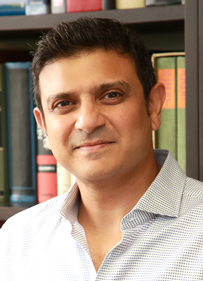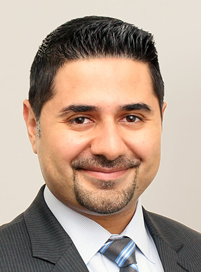This year’s TechMed sub-track turns medical education on its head thanks to a pilot program featuring flipped classroom methodology. Attendees learn a topic on their own, then discuss it in detail during the session.

“Last year’s Annual Meeting introduced an important new educational concept, that in order to have deeper learning of subject matter, it is important to study material in advance to facilitate a deeper discussion of concepts in the classroom,” said Swamy Venuturupalli, MD, Associate Clinical Professor of Rheumatology at the University of California, Los Angeles/Cedars Sinai Medical Center and head of the Annual Meeting Planning Committee Sub-committee for Technology in Medicine. “The ACR is piloting this flipped classroom concept in Washington.”
Part of this effort has been to collaborate with the Digital Scholar training initiative at University of Southern California. On Monday he will moderate the first session, Digital Scholar Training Series: What Rheumatologists Can Learn from Patients’ Online Conversation, along with Katja Reuter, PhD, Director of the Ehome and Digital Strategies program at the Southern California Clinical and Translational Science Institute. This session will give rheumatologists tools to explore and analyze social media postings by context.
“We know that our patients are spending tremendous amounts of time on social media,” Dr. Venuturupalli said. “Social media provides vast amounts of uncensored information in a very open format through forums and Twitter feeds. We are bringing attendees a methodology to tap into that information themselves.”
The methodology is Symplur Signals, a software program that allows researchers to query publically available sources such as Twitter. Symplur instructors will walk attendees through the software to conduct individualized research. A second session on Tuesday, Engaging with Patients Online: The Dos and Don’ts, and What’s to Gain, will examine the practical side of social media for the practicing rheumatologist.
A Tuesday workshop, Big Data Made Practical (ImmPort), uses the flipped classroom method to teach attendees how to analyze public data sets made available by federally funded medical research projects.
“One of the exciting talks at ACR 2015 showed research using publicly available data from the RAVE trial for ANCA-associated vasculitis,” Dr. Venuturupalli said. “In 2016, we will be training attendees on how to do this kind of research. You don’t need your own lab or clinical trial consortium to do this kind of research, you just need to be able to analyze public data in a uniquely relevant manner. This workshop is the nuts and bolts of how to analyze big data using the Immunology Database and Analysis Portal, ImmPort.”
Clinicians also can take home new tools. On Sunday, Tech Tools for Rheumatologists 2.0 will offer some of the best and most cost-effective technology to turn an ordinary smart phone into a rheumatology super tool.

“We have this powerful computer in our pockets, so it makes sense to utilize it for our patients,” said Suleman Bhana, MD, a private practice rheumatologist and early technology adapter. “Take capillaroscopy in Raynaud’s. You can buy an expensive dermatoscope, or you can pay $65 for a phone attachment that lets you capture photos and video as good or better than the $1,000 device. There are software add-ons that let you make your EHR more useful and more efficient. And there are apps that you can recommend to patients that can help them deal with their rheumatologic disease more effectively.”
On Monday, Smart Office, Smart Home: Adaptations for Rheumatic Disease will examine the state of adaptive technology for home and office. A Tuesday session, The Future of Medicine Is in Your Smart Phone, will focus on phone-based technology in healthcare.
“We need to be early adopters of technology and find ways to use them to do what is best for the patient,” Dr. Bhana said. “We can, and should, embrace technology in ways that are safe, responsible, and helpful to our patients and our practices.”
